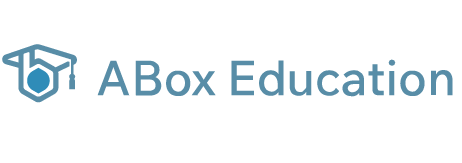Closed Books, Closed Doors: How Library Funding Cuts in the U.S. Threaten Student Access and Equity
- bonniechen54
- Apr 9, 2025
- 3 min read
Federal Library Funding Cuts and Their Impact on Students in 2025
In early 2025, the Trump administration announced sweeping cuts to federal agencies supporting public knowledge institutions—including the Institute of Museum and Library Services (IMLS)—the main funding body for public and school libraries across the United States.
The cuts came swiftly. As reported by USA Today, the move halted ongoing grants, paused long-term library projects, and left many states scrambling to maintain even the most basic library services.
This is not just a political decision—it’s one with massive implications for millions of students, educators, and parents, both in the U.S. and globally.

What Is IMLS, and Why Is It So Important to Education?
The Institute of Museum and Library Services is the primary federal agency that funds public libraries, school library programs, and educational literacy initiatives across all 50 states. In fiscal year 2023, IMLS had a budget of over $313 million.
These funds supported everything from:
Summer reading programs
ESL and literacy support
Technology upgrades and digital access
Rural and underserved community outreach
EdWeek notes that the cuts are particularly damaging to K-12 school libraries, many of which have been trying to recover from decades of underfunding.
Who's Affected Most? Domestic and International Students at Risk
U.S. Students Face Loss of Essential Academic and Digital Support
Students across the country—especially in lower-income and rural areas—rely on public and school libraries for access to:
Homework help
Internet and printing services
Research databases
Quiet study spaces
According to Federal News Network, over 60% of rural libraries are dependent on IMLS grants to provide basic services. The funding pause means these libraries could shut down hours, cancel programs, or even close completely.
International Students Lose Key Integration and Language Tools
Libraries have long played a critical role in helping international students transition into American academic life. These services often include:
TOEFL prep and language learning materials
Community events to foster inclusion
Culturally diverse reading materials
Research access for college courses
For students new to the U.S., public libraries serve as a first point of integration—a space to bridge language and academic gaps.
The Numbers: What’s Been Cut?
$15.7 million in federal grants to the California State Library were immediately canceled, cutting off funds to early literacy, visual impairment resources, and public access technology. (KCRA)
Nationally, more than 120 ongoing projects funded by IMLS were paused or put on indefinite hold.
According to the New York Times, the new IMLS-appointed director has already ordered internal reviews that will likely result in more long-term project cancellations and staff reductions.
Education Professionals and Public Response
Reactions have been swift and deeply critical. The American Library Association (ALA) and AFSCME, one of the largest public service unions, filed a legal challenge, arguing that the administration’s move violates federal law by unilaterally dismantling a Congressionally mandated agency.
One librarian told BuzzFeed News, “We’re not just losing books—we’re losing safe spaces, teachers, and the only internet some students can access.”
Public petitions have emerged in more than 30 states urging local governments to offset federal losses, but many communities lack the tax base to do so.
Upcoming Challenges for International Students
For international students planning to study in the U.S. or currently enrolled, the challenges include:
Limited access to free research tools: Databases, archives, and study environments offered through public libraries may be inaccessible without private subscriptions.
Weakened support networks: Libraries are often hubs for cultural adjustment programs, job application support, and visa resource events.
Higher academic stress: Losing access to quiet spaces and internet service puts low-income international students at a greater disadvantage.
Students relying on Optional Practical Training (OPT) programs may also face additional obstacles when preparing job applications, as many libraries previously provided resume-writing workshops and job board access.
Conclusion: A Wake-Up Call for Students, Families, and Policymakers
Whether you're a high school student from Kansas or an international grad student in California, these funding cuts are not abstract—they’re personal. The future of U.S. education is built not just in classrooms, but in the libraries that support them.
As policy debates continue, families and students must remain informed, proactive, and vocal. Libraries have always symbolized free access to knowledge. Letting them shrink in silence could reshape the academic journeys of millions.




Comments